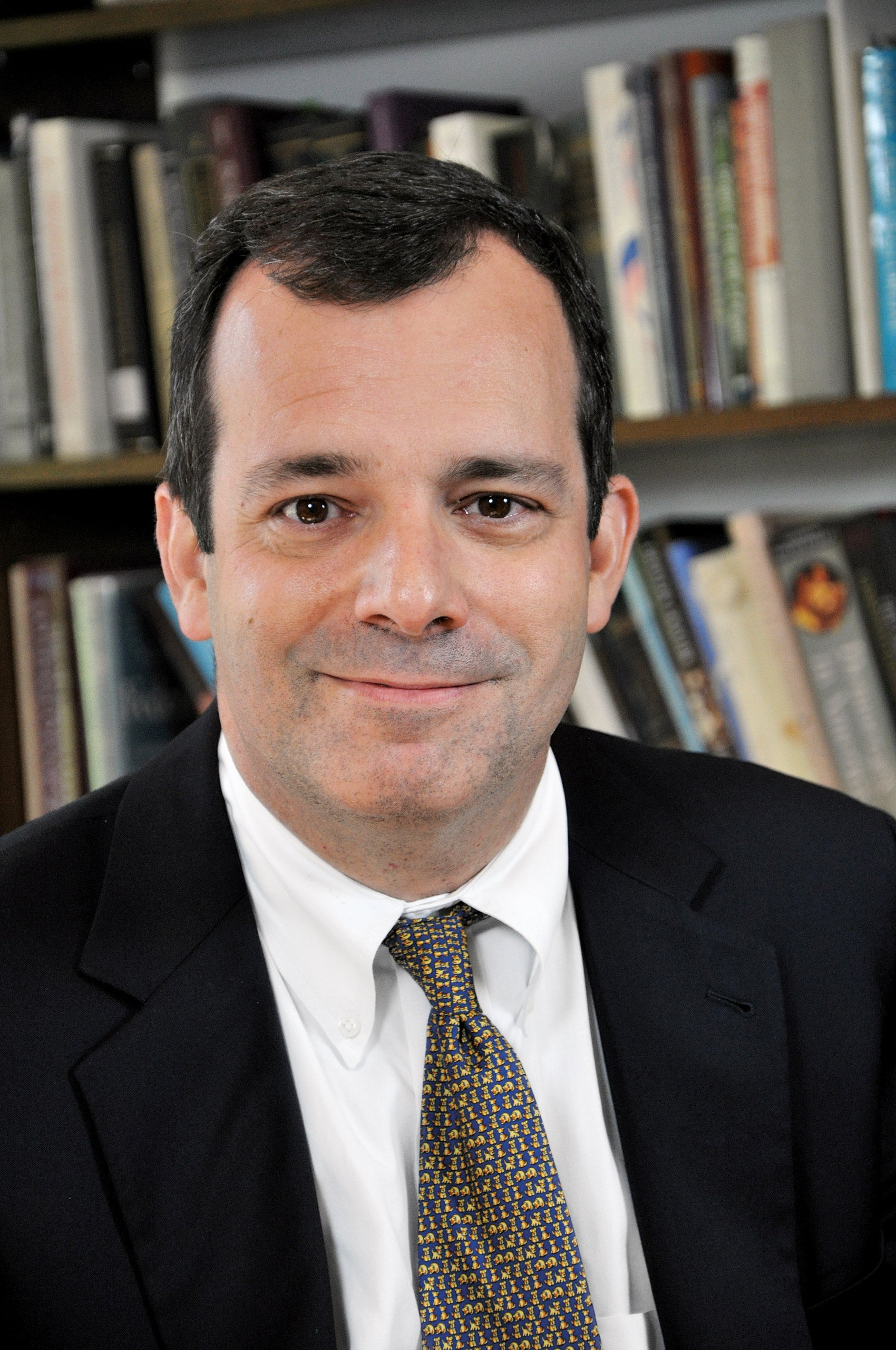Professor John Manning delivered a chair lecture, “The Separation of Powers as Ordinary Interpretation,” in October to mark his appointment as the Bruce Bromley Professor of Law.
Manning, who was named to the chair in 2007, was introduced by HLS Dean Martha Minow. “John’s work exemplifies how close attention to text, respect for constitutional and governmental structure, adherence to principle both preserve and advance the vital significance of these values in the rule of law,” she said. “It gives me enormous personal pleasure to introduce the Bruce Bromley Professor of Law, distinguished scholar, highly accomplished lawyer, trusted advisor, “Nicest Person. Ever,” and my dear friend, John Manning.”
Addressing a full Caspersen Room, with a broad representation of the Harvard Law School community in attendance, Manning explained that he chose the topic of separation of powers because it reflects how teaching at Harvard Law School has changed the way he thinks about the relationship between separation of powers and textualism. At the most basic level, textualists believe that statutes should be interpreted by the ordinary meaning of the words they enact, while purposivists look more to the background policies that inspired the legislation. Manning said that studying the work of Legal Process scholars Henry Hart and Albert Sacks, both of whom had distinguished careers at Harvard Law School, had made him sympathetic to the idea that all laws are inspired by some purpose. But, he emphasized, it is nonetheless crucial to recognize lawmakers express their purpose, in part, through the particular means they select for putting a law into effect—including decisions about when to make provisions specific and precise and when to make them open-ended and flexible.
Applying that idea to the Constitution, he suggested that he now thinks “that it’s a mistake to talk about separation of powers as a freestanding concept.” Manning stressed that there is no all-purpose “separation of powers clause” in the Constitution, and that the constitutional text, in fact, reflects countless particular decisions about how to strike an appropriate balance between separating and blending or otherwise checking federal power. Records from the Philadelphia Convention confirm that there may have been broad agreement about the need for some sort of separation of powers, but that there was much disagreement on how to implement it. Even if the founders had wanted to adopt a separation of powers clause, there would have been little or no consensus about what that concept entailed.
“If one thinks, as I do, that the written Constitution has at least some binding force, then respect for the lawmaking process forces us to pay attention to the varying levels of generality they used in the text,” he said.
To illustrate his point about how both the framers of the Constitution and authors of statutes have settled on a particular level of specificity, he used as an example a sign that reads “No Dogs in the Park.” He explained that the authors settled on these specific words, rather than “No Disruptive Animals,” even knowing that it would be both over- and underinclusive in relation to the apparent goal of excluding disruptive pets.
After the conclusion of his remarks, he answered questions from faculty and students and further explained his theory of textual particularity. He pointed out that lawmakers and jurists cannot choose to enforce some aspects of the Constitution while ignoring others, regardless of the level of generality.
“Sometimes the text is clear and specific, and sometimes it’s vague and open ended,” he said. “But being faithful to the levels of generality within the constitution is being faithful to the constitution.”
The article on which Manning’s talk was based will appear in the Harvard Law Review in 2011.
